Digital Citizenship Framework and Competencies
| Site: | Training Courses |
| Cursus: | 03: Responsible use of ICT in schools |
| Boek: | Digital Citizenship Framework and Competencies |
| Afgedrukt door: | Gastgebruiker |
| Datum: | dinsdag, 15 april 2025, 04:40 |
1. Digital Citizenship Frameworks

In recent years digital and online approaches have increasingly been incorporated into our teaching and learning practices. This trend accelerated during the COVID-19 pandemic when educators were forced to adopt Emergency Remote Teaching (ERT) strategies. An ever greater role for educational technology has elicited much debate as to what IS responsible and ethical behaviour for educators and students when studying with technology, and particularly online.
Numerous digital citizenship frameworks have been proposed. In 2017, UNESCO synthesized a number of these frameworks into a 'refined' framework that identified five main areas of concern. Areas where ideally both educators and students needed be capacitated to operate safely and with respect to others. These areas included,
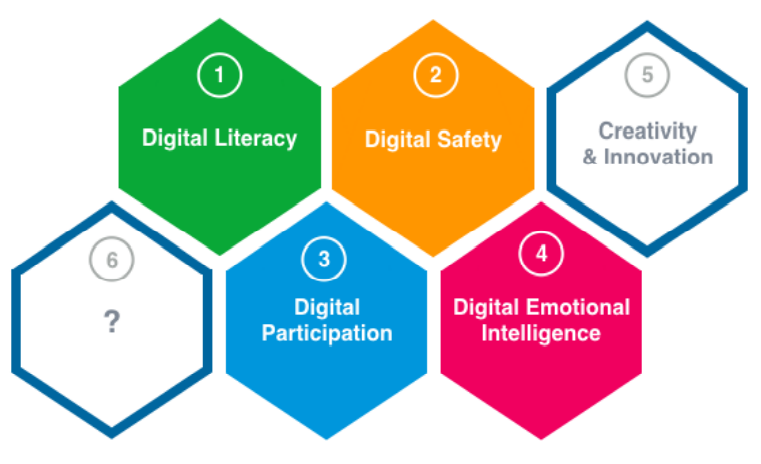
2. Digital Citizenship Competencies

One particular framework, called the DQ (Digital Intelligence) Framework, created by the DQ Institute, identifies eight digital citizenship competencies, or skill sets, that educators and students should strive for. The framework calls on you to become proficient yourself, and both model and teach your students, to have the following competencies:

In the DQ Framework there are three levels of competencies, Digital Citizenship (the ability to use digital technology and media in safe, responsible, and ethical ways), Digital Creativity (The ability to create and use new knowledge, technologies, and content to turn ideas into reality) and Digital Competitiveness (the ability to solve global challenges, to innovate and to create new opportunities in the digital economy). We will investigate the first level as it is ideal for our role as educators and aligned to the needs of our students.
See the full competency framework at DQ Institute. (2020). What is the DQ Framework? Available online here
2.1. Digital Identity

Consider the knowledge, skills and values associated with 'Digital Identify' at the Digital Citizenship level of the DQ Framework.
- Do you have these skills?
- Can you think of a way to impart 'digital identify' to your students?
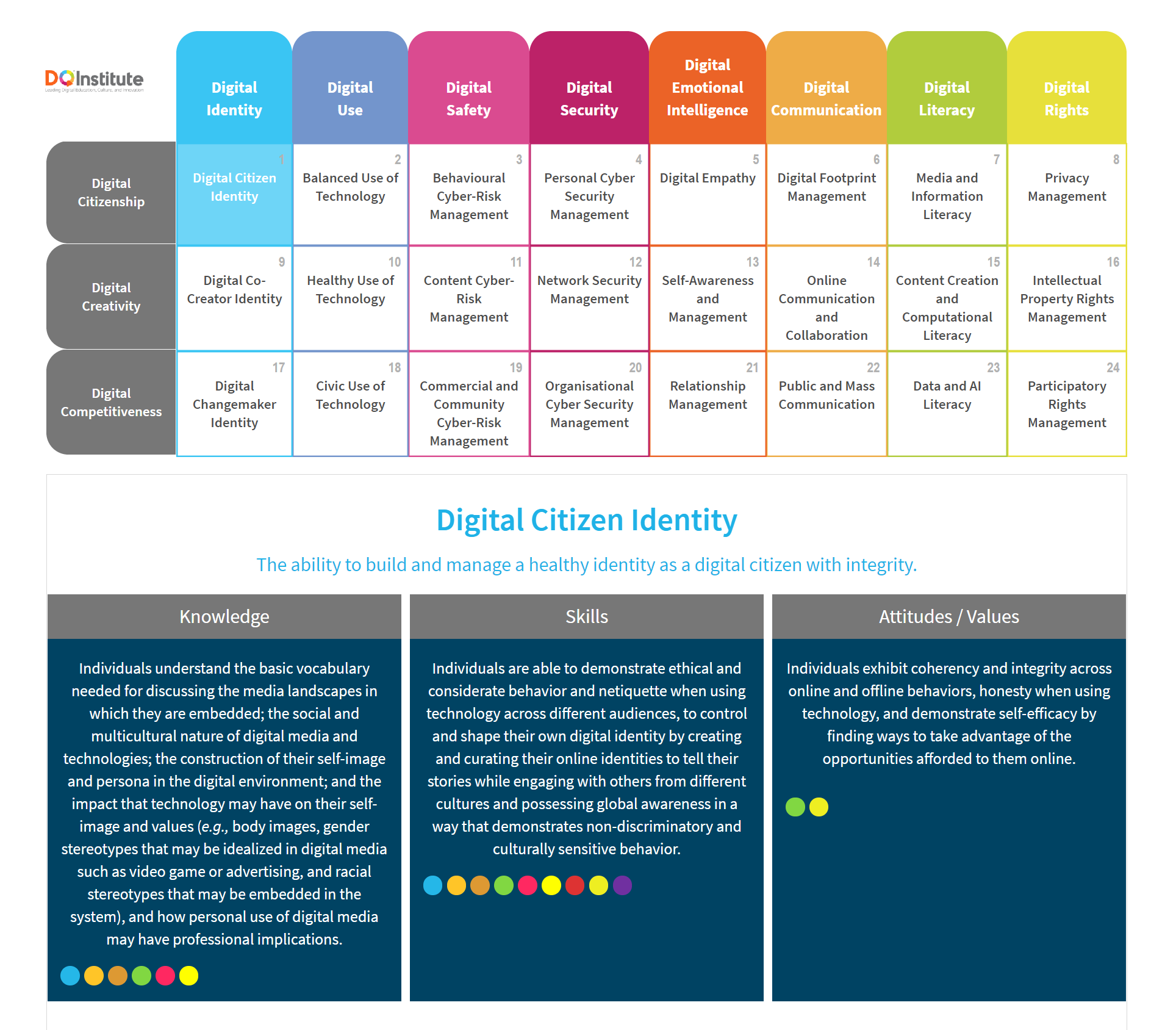
2.2. Digital Use

Consider the knowledge, skills and values associated with 'Digital Use' at the Digital Citizenship level of the DQ Framework.
- Do you have these skills?
- Can you think of a way to impart a 'balanced use of technology' to your students?
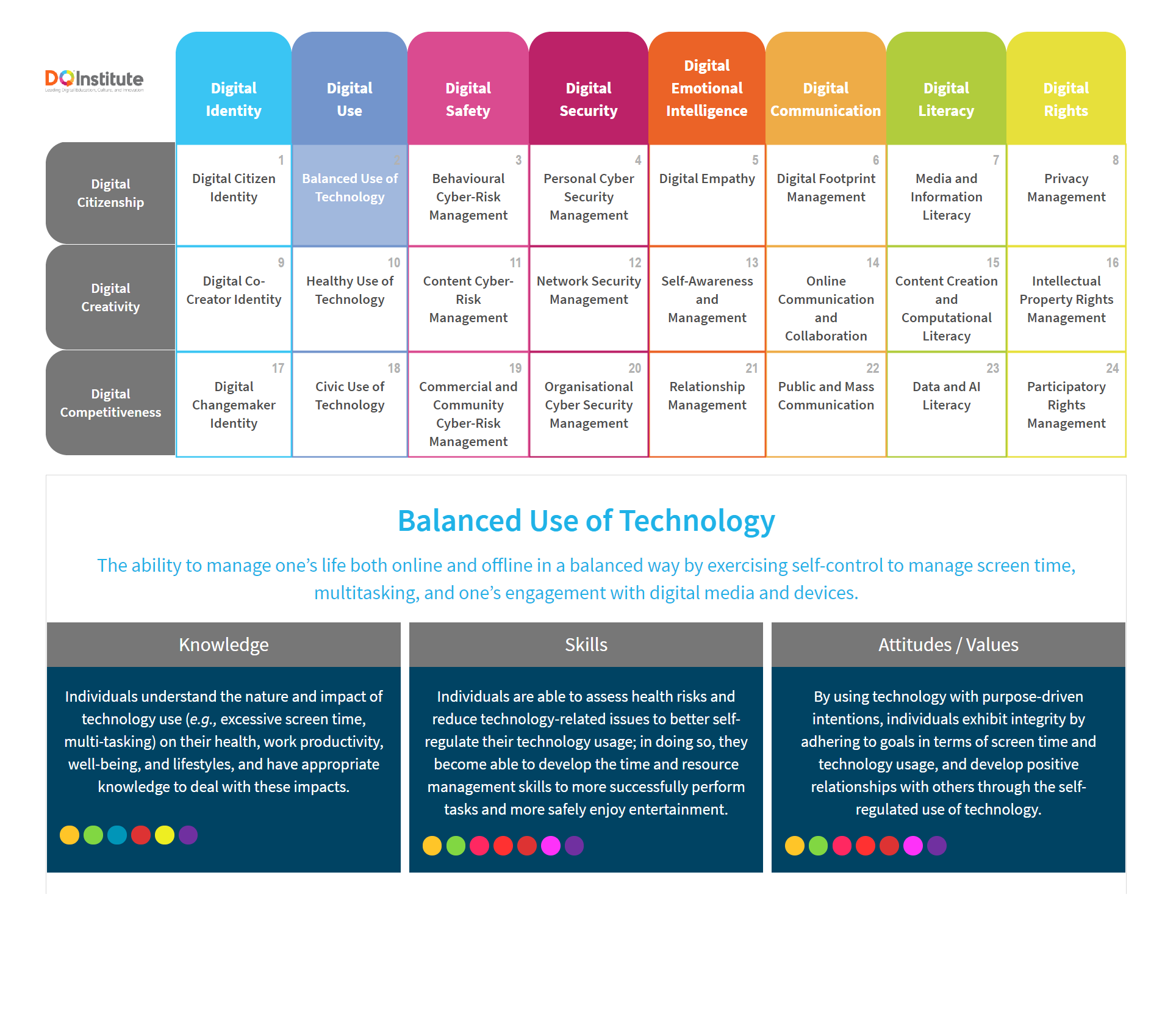
2.3. Digital Safety

Consider the knowledge, skills and values associated with 'Digital Safety' at the Digital Citizenship level of the DQ Framework.
- Do you have these skills?
- Can you think of a way to impart 'cyber-risk management' to your students?
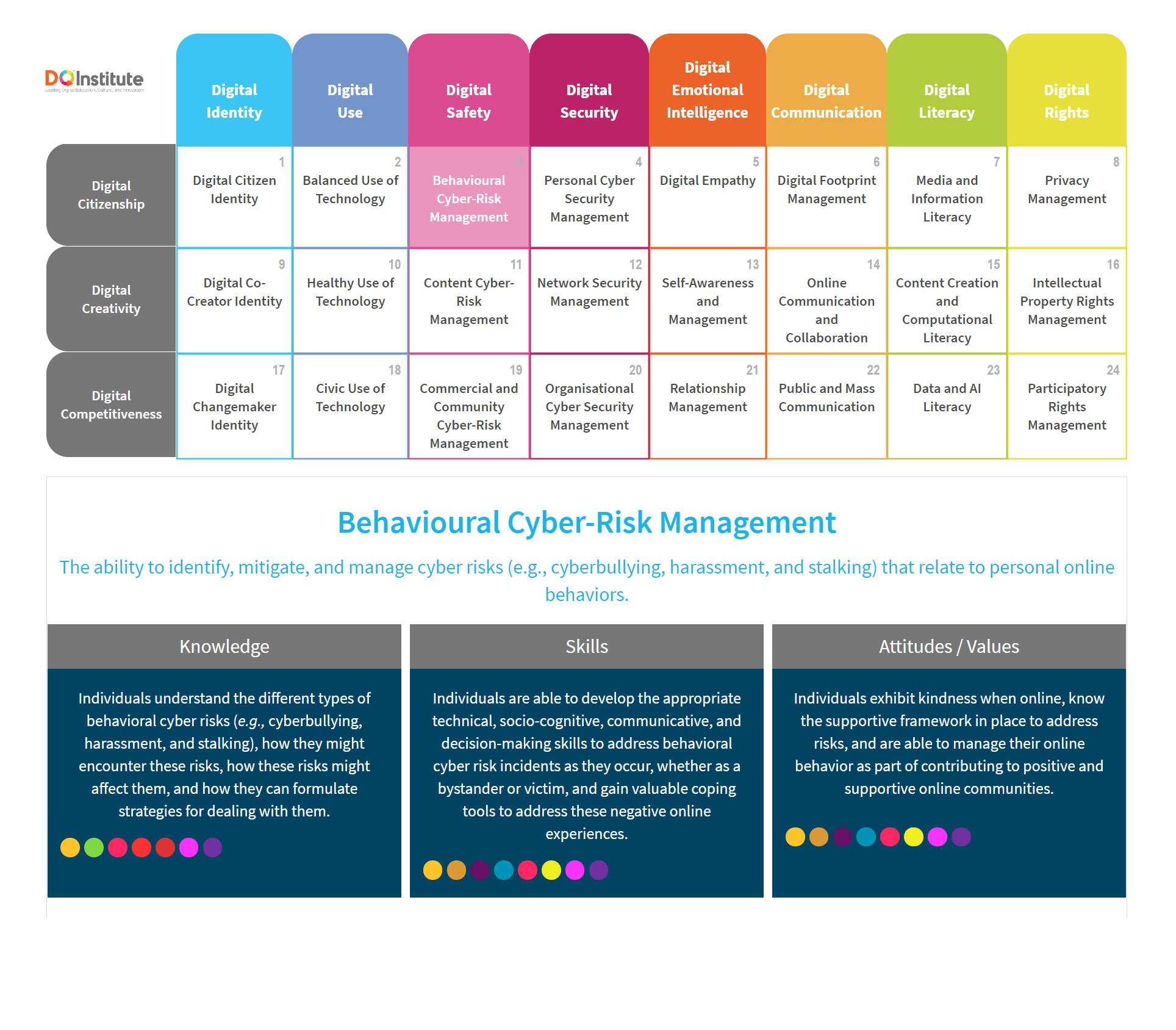
2.4. Digital Security

Consider the knowledge, skills and values associated with 'Digital Security' at the Digital Citizenship level of the DQ Framework.
- Do you have these skills?
- Can you think of a way to impart 'cyber-security management' to your students?
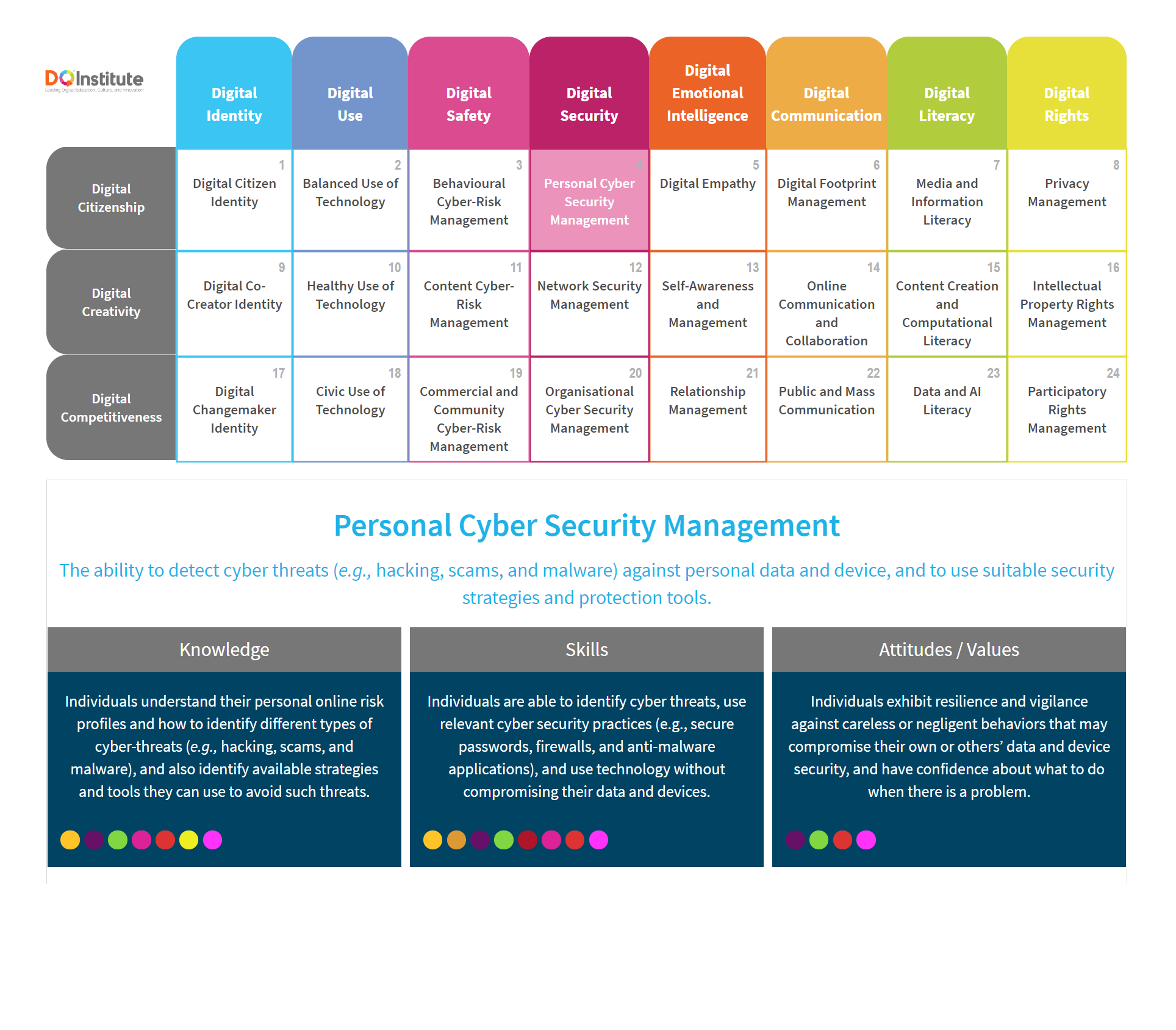
2.5. Digital Emotional Intelligence

Consider the knowledge, skills and values associated with 'Digital Emotional Intelligence' at the Digital Citizenship level of the DQ Framework.
- Do you have these skills?
- Can you think of a way to impart 'digital empathy' to your students?
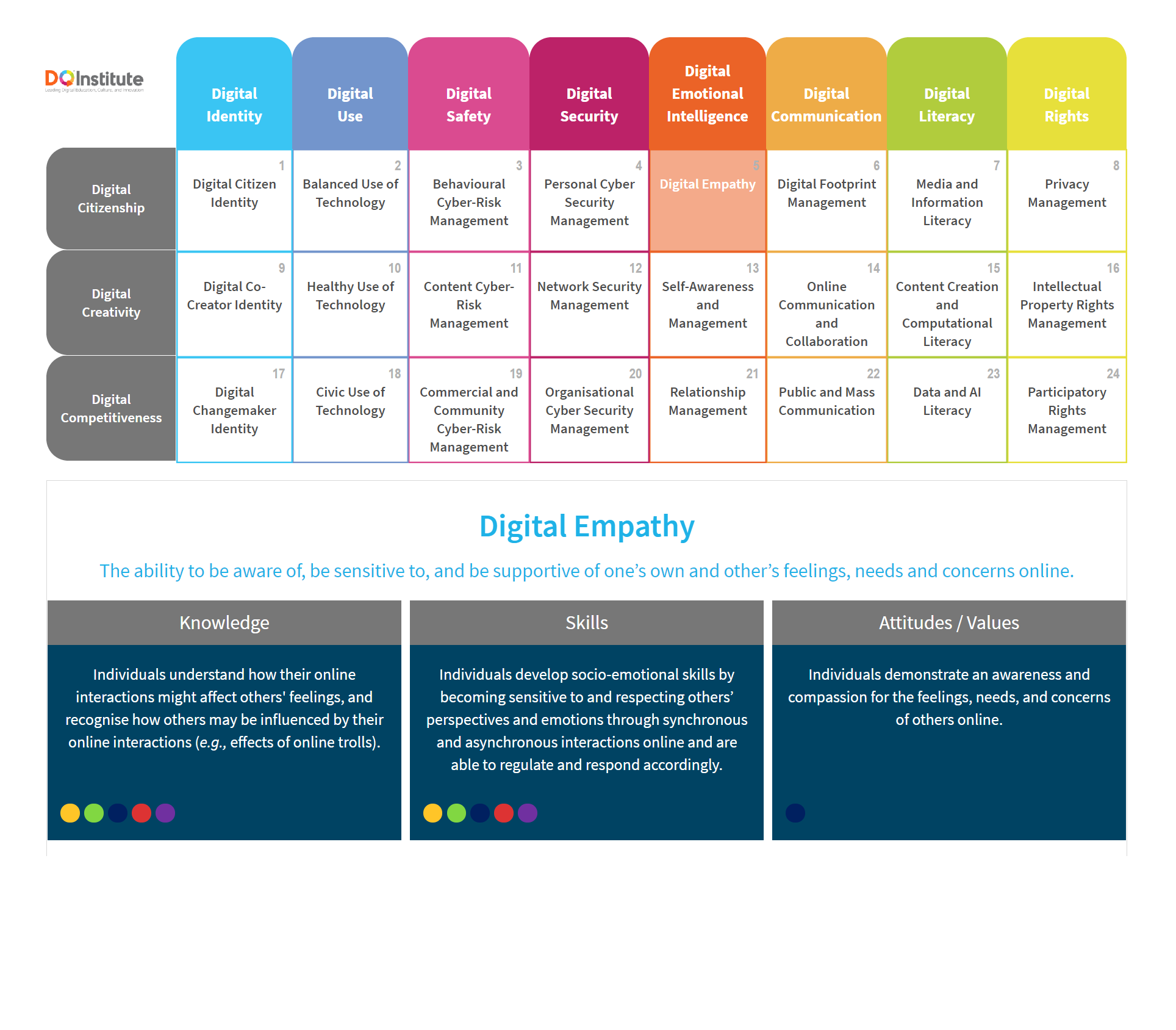
2.6. Digital Communication

Consider the knowledge, skills and values associated with 'Digital Communication' at the Digital Citizenship level of the DQ Framework.
- Do you have these skills?
- Can you think of a way to impart 'digital footprint management' to your students?
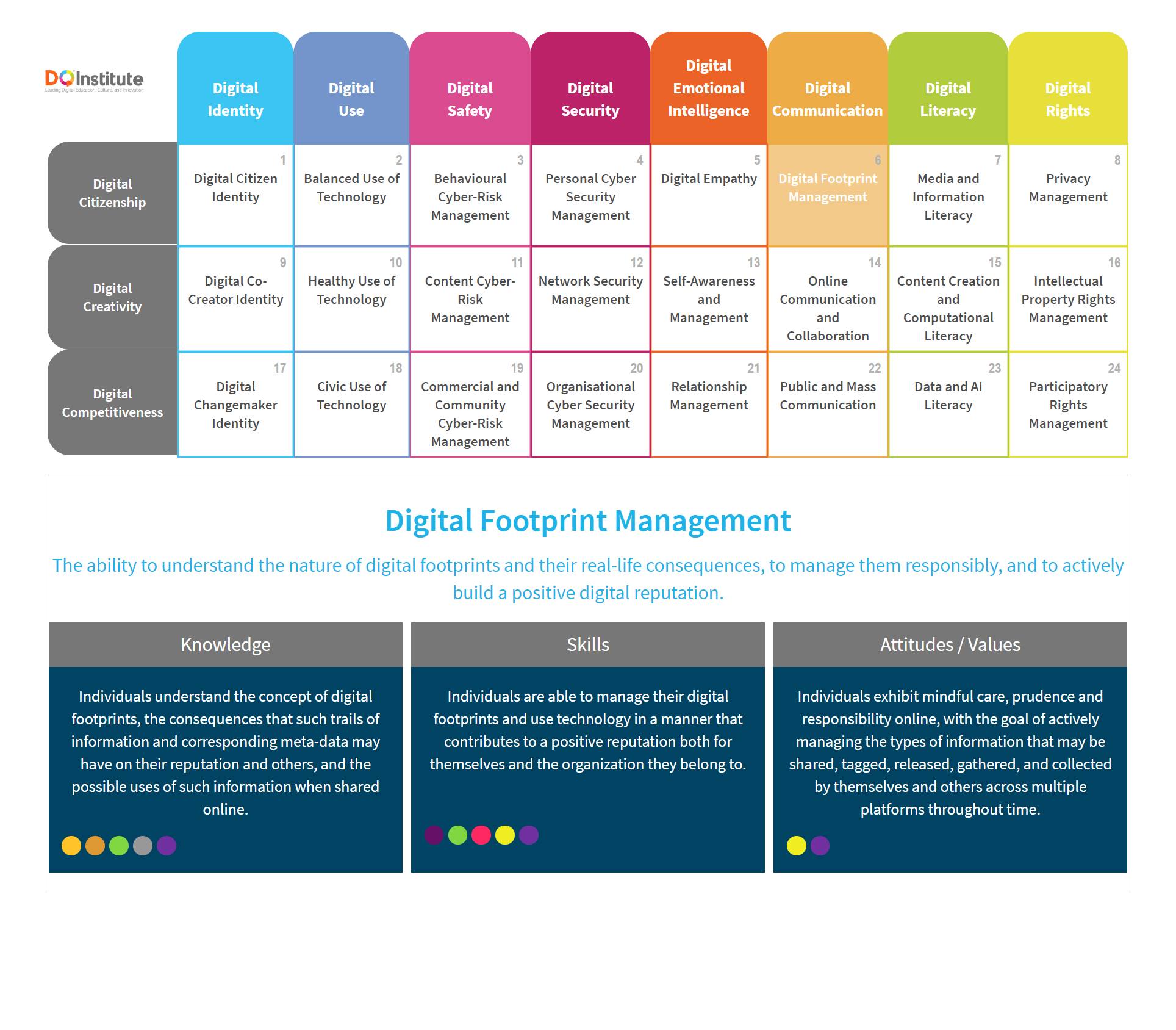
2.7. Digital Literacy

Consider the knowledge, skills and values associated with 'Digital Literacy' at the Digital Citizenship level of the DQ Framework.
- Do you have these skills?
- Can you think of a way to impart 'media and information literacy' to your students?
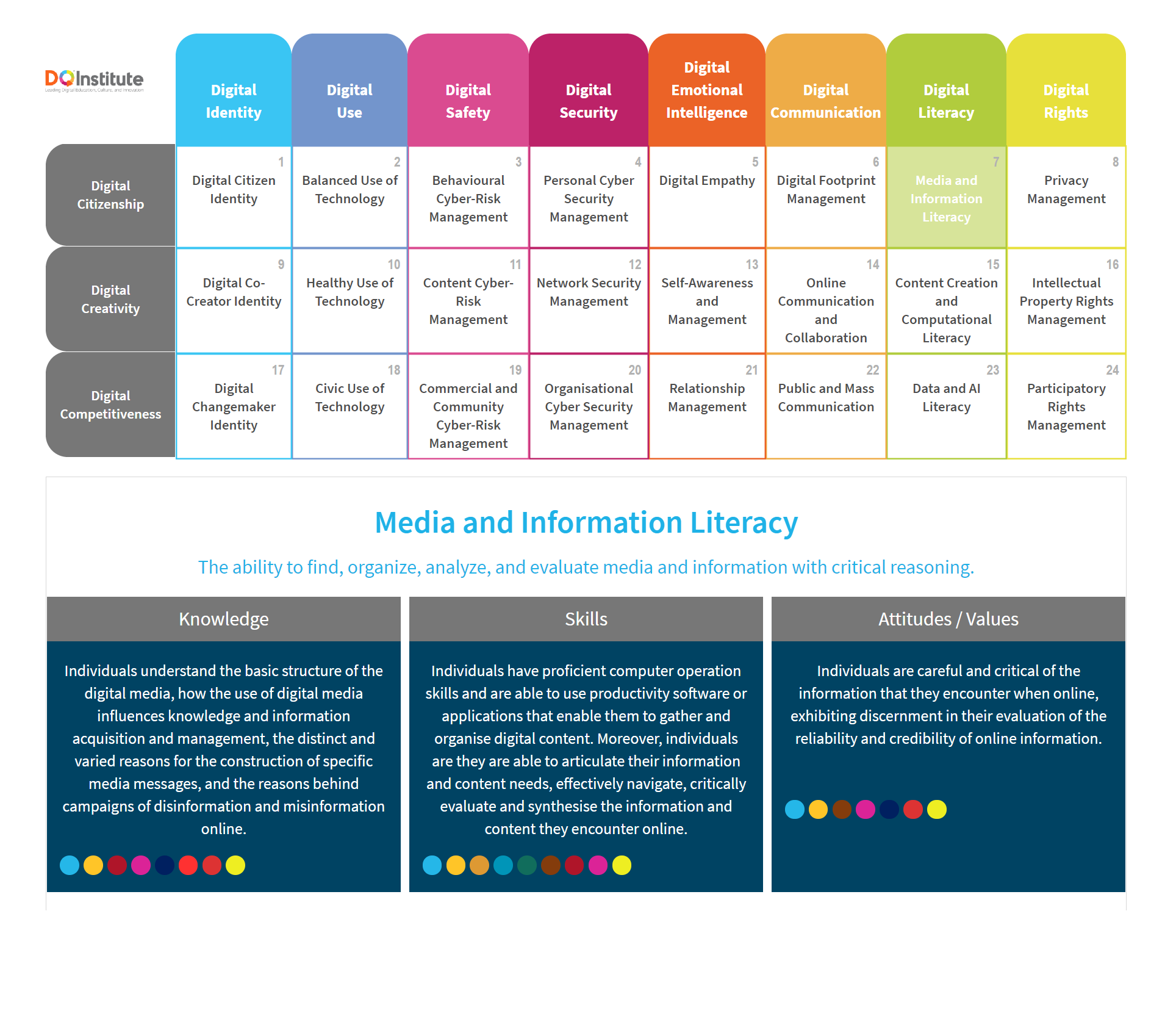
2.8. Digital Rights

Consider the knowledge, skills and values associated with 'Digital Rights' at the Digital Citizenship level of the DQ Framework.
- Do you have these skills?
- Can you think of a way to impart 'privacy management' to your students?
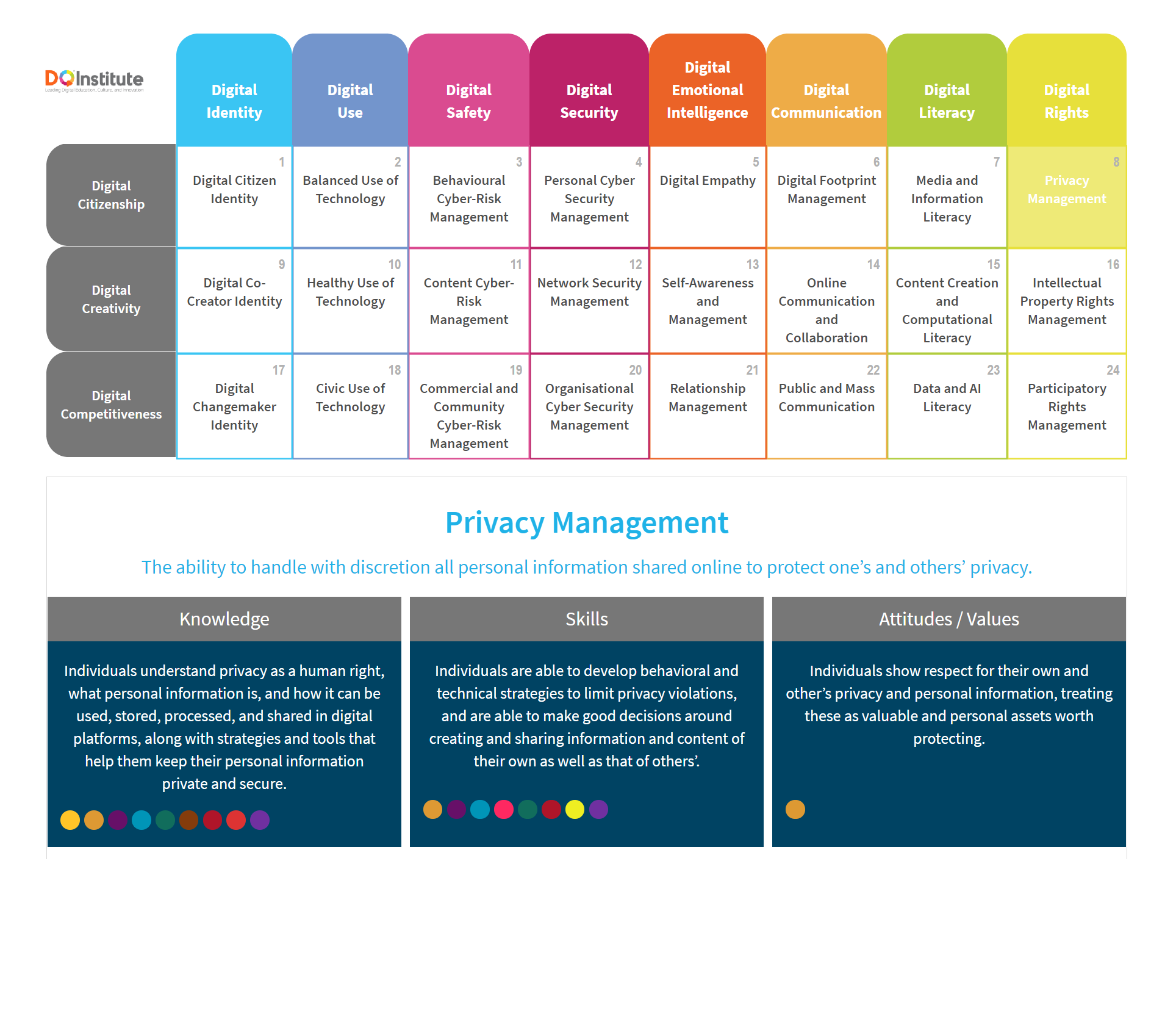
3. Other Frameworks

It's worth having a quick look at some of the other frameworks. The overlap is significant but each does have its own emphasis:
4. Lesson ideas

Digital citizenship has many components, educators and students would need to study a full curriculum! However, it is possible to start student training straight away. Consider the following simple lesson ideas:
5. Conclusion

Do you feel up to the task of providing your students with skills, knowledge and values to be responsible and safe when studying online? To provide you with some additional knowledge and skills we will revisit 'digital safety' in unit 11.